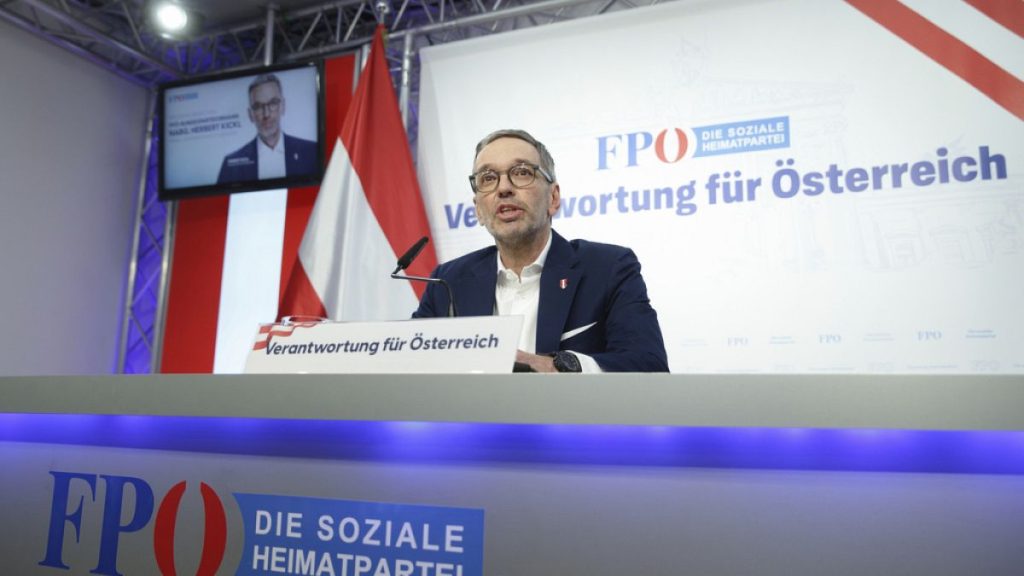Herbert Kickl’s invitation to the ÖVP for coalition talks marks a pivotal moment in Austrian politics, potentially reshaping the nation’s political landscape and its relationship with the European Union. The FPÖ’s recent electoral victory, surpassing the incumbent ÖVP, has propelled Kickl into a position of significant influence, raising concerns about the direction Austria might take under his leadership. This invitation, while extending an olive branch, also carries an implicit ultimatum: engage in genuine negotiations or face the prospect of a snap election that could further solidify the FPÖ’s dominance.
Kickl’s ascent to power is viewed with apprehension by many, particularly given his unpredictable political style and the FPÖ’s far-right ideology. Political analysts suggest that a Kickl-led government could trigger a shift in power dynamics within the EU, potentially disrupting established alliances and policies. His track record of employing unconventional tactics and his stated intention to deviate from the previous government’s course contribute to the uncertainty surrounding his potential chancellorship. The prospect of Austria, a historically centrist nation, embracing a far-right government has raised eyebrows across Europe and fueled speculation about the broader implications for the political climate within the EU.
The path to forming a coalition government is fraught with challenges. The ÖVP, the only viable coalition partner for the FPÖ, initially resisted aligning with Kickl’s party, citing ideological differences and concerns about his leadership. However, the failure of alternative coalition attempts and the looming threat of further empowering the FPÖ through a snap election have forced the ÖVP to reconsider its stance. The upcoming coalition talks will be a delicate balancing act, requiring both parties to navigate their ideological differences and find common ground to form a stable government.
The outcome of these negotiations holds significant implications for Austria’s future. A successful coalition between the FPÖ and ÖVP would mark the return of a far-right government to Austria for the first time since World War II, potentially ushering in a new era of policy changes and political realignments. Conversely, the failure of coalition talks could plunge Austria into further political instability, necessitating another round of elections and prolonging the uncertainty surrounding the nation’s leadership.
While the coalition talks unfold, Austria is under interim leadership. Alexander Schallenberg, the current Foreign Minister, has been appointed as interim chancellor, providing a temporary bridge during this crucial period of political transition. Schallenberg’s appointment ensures continuity in government functions while the FPÖ and ÖVP navigate the complex process of forming a coalition. His role will be to maintain stability and oversee the day-to-day operations of the government until a new chancellor is appointed.
The current political climate in Austria reflects a broader trend of rising populism and far-right movements across Europe. The FPÖ’s electoral success mirrors similar gains by far-right parties in other countries, reflecting a growing dissatisfaction with traditional political establishments and a shift towards more nationalist and anti-immigrant sentiments. The potential formation of a far-right government in Austria could embolden similar movements elsewhere in Europe and further challenge the EU’s established political order. The success or failure of the FPÖ-ÖVP coalition talks will not only determine Austria’s immediate future but could also have ripple effects throughout the European political landscape.














